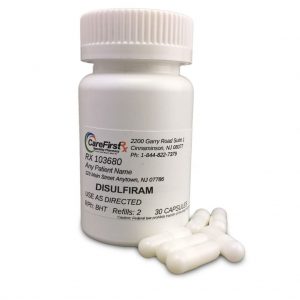Best Treatment For Alcoholics
The cases for binge drinking and alcoholism are on the rise starting from adolescents to adults. If you are looking for excellent advice on finding the best treatment for alcohol use disorder, then you have come to the right place.
In this article, we are going to discuss the various therapies and treatment options for those suffering from this bad habit. Continue reading to learn more about it.
How Bad Is Alcoholism in the United States
- In 2019, around 6% of the general population within the age of 18 years and older have drunk alcohol in their life.
- For binge drinking, 3% of the population are doing it.
- In the U.S., around 1 million individuals are diagnosed with an alcohol use disorder (AUD).
- For the adolescents (age 12-17), around 414,000 of them are alcoholics.
- In terms of death related to alcohol drinking, there were 95,000 death counts reported. Whereas, 9,967 cases of vehicular accidents were caused by drunk driving.
Indicators that You Have an Alcohol Use Disorder
 It is technically hard for someone to admit that they are suffering from alcohol abuse, yet here are some signs that will help you gauge if you have it or not.
It is technically hard for someone to admit that they are suffering from alcohol abuse, yet here are some signs that will help you gauge if you have it or not.
- Experiencing withdrawal symptoms upon stopping from drinking alcohol. Some of these symptoms include vomiting, excess sweating, nausea, irritability, and trouble sleeping.
- Getting into trouble while or after your drinking session
- Keeping supplies of alcoholic drinks all the time
- Continue drinking even when it hurts your loved ones
- Prioritizing to drink than other important tasks or events to attend to
- Unaware that you are drinking too much already
- Several times that you failed to stop drinking
Various Treatment Options for Alcoholism
Typically, we can divide these recovery options into three: medication, behavioral therapies, and support groups for alcoholics. All these various recovery programs are needed for any patient to fully recover from alcohol abuse. For you to get clear advice, it is best to consult with a medical personnel.
1. Medications
A doctor or alcoholic specialist will give you the right prescription medicine to overcome alcohol abuse, its side effects, and withdrawal symptoms. You need to strictly abide by the prescribed dosage and treatment duration to avoid any overdose with the medicines.
Alongside this, here are the common medicines they can prescribe to you:
It is usually given to help you cut back on your heavy alcohol drinking. With that, you will have less motivation to consume alcoholic beverages. Furthermore, the usual side effects of this drug are headache, slight lightheadedness, and occasions of anxiety.
 This drug works best when paired with support groups and behavioral therapies for treating alcohol abuse. Its main role is to block your body and brain from absorbing alcohol. With that, you will have negative effects when you try to consume alcohol again.
This drug works best when paired with support groups and behavioral therapies for treating alcohol abuse. Its main role is to block your body and brain from absorbing alcohol. With that, you will have negative effects when you try to consume alcohol again.
The common side effects of this drug include minor headaches, acne, restlessness, and sleepiness. Be sure to follow the prescription bottle when taking this medicine to avoid any overdose.
This drug works on the brain where it helps get back to its normal function after consuming huge volumes of alcohol. Also, it helps you maintain alcohol abstinence and you need to follow its prescribed dosage.
2. Behavioral Therapies
Alcoholism is also a behavioral problem, so interventions and counseling programs must be included in your treatment plan. With that, it helps you correct your drinking habits and replace that with a healthier activity and mindset.
Below are the main goals for all behavioral treatment options:
- Finding the right support group to boost your morale and courage to get sober
- Establishing goals that lead to recovery
- Helps you formulate ways of avoiding risk factors that might cause a relapse
- Developing the right attitude and skills to overcome alcohol abuse
Here are some of the common behavioral therapies used to treat alcohol use disorder:
- Short Interventions
It is a one-on-one limited time counseling session between you and the doctor, where you will receive feedback about the progress of your treatment. Likewise, the doctor will help you establish recovery goals and monitor your achievement on it.
- Family Counseling
This will incorporate your family and loved ones in the therapy session, where it aims to re-establish your good relationship with them. Also, your family will give you the best emotional and moral support to help you win this battle over alcoholism.
- Motivational Enhancement Therapy (MET)
Developing self-motivation is one of the main keys to a successful treatment plan. The counselor will help you understand the benefits and setbacks from undertaking a recovery rehab program. Also, he will facilitate in honing your skills and confidence towards modifying your negative habits and transform that into a positive one.
- Cognitive Behavioral Therapy (CBT)
This therapy can be done in a group or one-on-one session with the therapist. Through this program, you can identify the triggers (stress and negative thoughts) of your alcoholism.
After identifying it, the therapist helps you formulate positive countermeasures to overcome these risk factors and avoid your drinking habits.
3. Alcoholics Support Groups
 These are support networks or groups that follow the 12-step program towards sobriety. A good example of this is the Alcoholics Anonymous (AA), where all members gather in a circle and share their experiences towards getting sober.
These are support networks or groups that follow the 12-step program towards sobriety. A good example of this is the Alcoholics Anonymous (AA), where all members gather in a circle and share their experiences towards getting sober.
All members will give moral and emotional assistance to everyone so that they can effectively recover from alcoholism.
How To Find the Appropriate Treatment Program
You have the freedom to reach out for assistance from addiction specialists or doctors in finding the right treatment plan to suit you. Likewise, here are some guide questions or tips you can adapt in selecting the best recovery program for your alcohol abuse problem.
- Understand the details of the treatment program offered by a certain rehab facility or medical personnel. With that, you need to look into the credibility of their staff and the facility they have to cater to various patients and conditions.
- Do they provide customized treatment programs to patients? All patients are unique and so must be their treatment plans for recovering from alcoholism and addiction. We have varying personalities, bodies, and mindset towards things, so providing a tailored-fit program is highly recommended.
- Know your part in the treatment process. Enrolling in a rehab program is a two-way process, so you need to understand what will be your role for the entire duration.
- Will there be measurable goals for the success of the treatment? It is best if the service provider of the treatment has a specific means of measuring your progress in the recovery program. With that, everything is clear and transparent.
- If there is a relapse, how will the service provider handle it? Technically, not all patients will have a successful rehab journey, so discover how they will respond to any relapse to specific patients enrolled in their program. With that, you would know their professionalism and competency in this field.
Finding the right rehab treatment for alcohol use disorder is a daunting task, yet you can make this easier and more efficient when you lean on professionals. They have extensive experience and the equipment; to effectively handle these problems.
Get help as early as now, get in touch with your nearest alcoholism or addiction specialist today.
